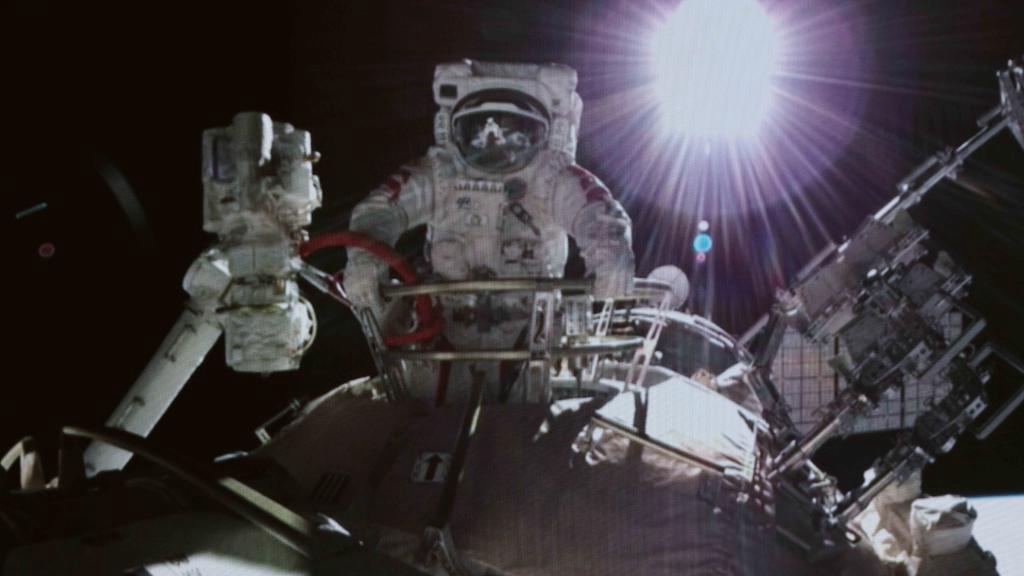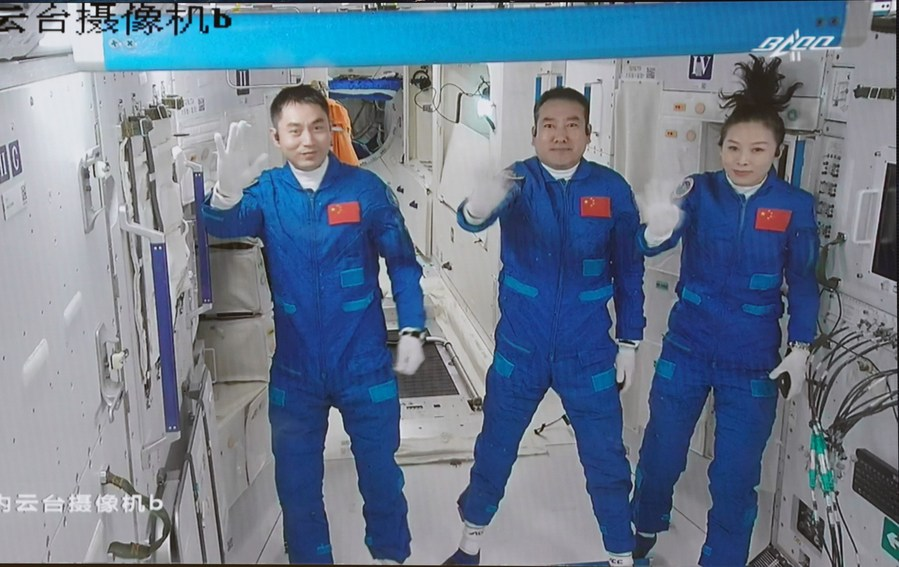
Taikonaut Zhai Zhigang conducts extravehicular activities (EVAs) out of China's space station core module Tianhe, November 7, 2021. /Xinhua
Taikonaut Zhai Zhigang conducts extravehicular activities (EVAs) out of China's space station core module Tianhe, November 7, 2021. /Xinhua
China's Shenzhou-13 taikonauts, currently inside the country's space station, will carry out their second spacewalk or extravehicular activities (EVAs) on Sunday, China Manned Space Engineering Office (CMSEO) announced Saturday.
Zhai Zhigang and Ye Guangfu will venture outside of the core module Tianhe. At the same time, their female teammate Wang Yaping will remain in the cabin to support their operations, the CMSEO said.
Currently, the three taikonauts are in good conditions, and the space station is operating stably, ready for the second EVAs, according to the CMSEO.

Screen image captured at Beijing Aerospace Control Center in Beijing, capital of China, Oct. 16, 2021 shows three Chinese astronauts, Zhai Zhigang (C), Wang Yaping (R) and Ye Guangfu (L), waving after entering the space station core module Tianhe. /Xinhua
Screen image captured at Beijing Aerospace Control Center in Beijing, capital of China, Oct. 16, 2021 shows three Chinese astronauts, Zhai Zhigang (C), Wang Yaping (R) and Ye Guangfu (L), waving after entering the space station core module Tianhe. /Xinhua
As of Friday, the Shenzhou-13 crew has lived and worked in the space station for 71 days. They were sent into space onboard the Shenzhou-13 spaceship and entered the Tianhe core module on October 16, embarking on China's longest-ever crewed mission lasting six months for space station construction.
The team performed their first EVAs on November 7, which lasted for about 6.5 hours. During that mission, Zhai and Wang went outside of the cabin while Ye stayed inside.
The first spacewalk was a complete success, which further tested the functions of China's self-developed extravehicular spacesuits, and the reliability and safety of the supporting equipment related to the EVAs.
Since then, the trio has conducted various tasks, including medical checks, space experiments, inspection and daily maintenance of the space station, and in-orbit training programs such as emergency evacuation and medical rescue.
They have also successfully given their first space lecture on December 9, which was received with much enthusiasm by many students and space lovers.
(CGTN's Li Qian also contributed to the report.)

